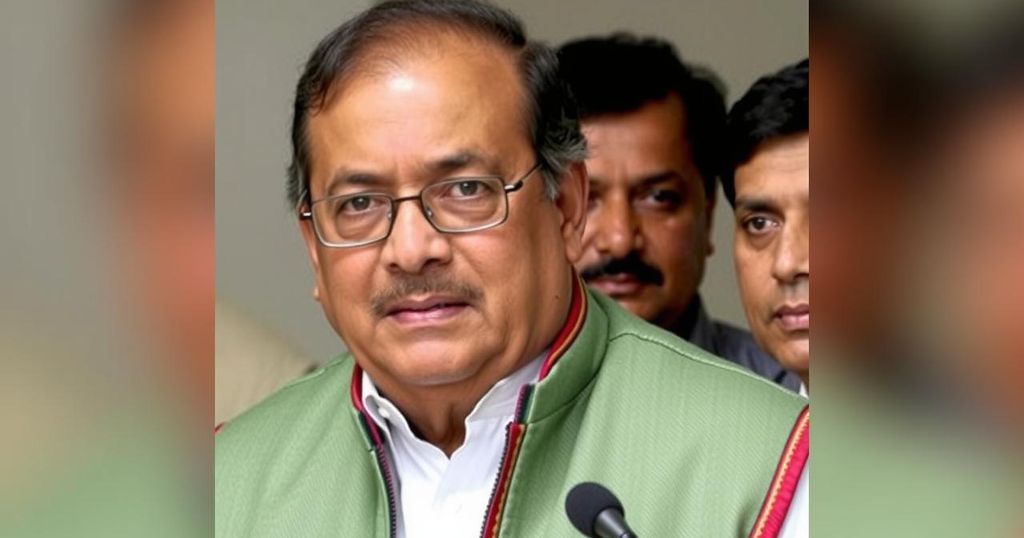Politics
ASIA, BABAR, BANGLADESH, BANGLADESH NATIONALIST PARTY, BNP, CHINA, DIRECTORATE GENERAL OF FORCES INTELLIGENCE, INDIA, INNOVATION, JAMAAT - E - ISLAMI, MARKET RESEARCH, MEXICO, MYANMAR, NATIONAL SECURITY INTELLIGENCE, NEIL PATEL, NORTH AMERICA, RAHMAN, RESEARCH, REZZAKUL HAIDER CHOWDHURY, SUSTAINABILITY, TARE, TECHNOLOGY
Dante Raeburn
Former Minister Acquitted in Significant Arms Smuggling Case
The former Bangladeshi minister’s acquittal in a significant arms smuggling case has important implications for regional security and political dynamics. With the smuggling operation intercepted, concerns regarding ties between Bangladesh and northeastern insurgent groups persist. The case may influence internal political alignments, particularly reinforcing factions within the Bangladesh Nationalist Party.
The recent acquittal of a former Bangladeshi minister in an arms smuggling case has raised significant concerns, particularly regarding its implications for regional security. Paresh Barua has received a life sentence, while the death sentences of six other co-conspirators were commuted to ten years in prison. Reports indicate that the cargo, consisting of ten trucks filled with arms, was destined for the United Liberation Front of Asom (ULFA) and other insurgent organizations in Northeast India. This smuggling attempt was reportedly thwarted just in time by authorities.
The oversight of this case by the Indian government suggests heightened awareness surrounding the links between Bangladesh and insurgent activities in the region. Notable figures implicated include former ministers and military officials, indicating a broad network of complicit actors. The arms smuggling incident has highlighted the historical connections between northeastern insurgent groups and Bangladesh, particularly during the BNP-Jamaat alliance, which governed from 2001 to 2006.
Additionally, the political ramifications of the case are significant. The acquittal of the former minister is expected to bolster the Tareque Rahman faction within the Bangladesh Nationalist Party (BNP), with Babar, an influential figure in this faction, enjoying a close association with Rahman. Observers suggest that Rahman’s responsibilities concerning the arms smuggling cannot be disregarded, considering the political context in which this situation unfolded.
Arms smuggling has long been a critical issue in South Asia, with Bangladesh being a significant conduit for various insurgent groups operating in India. The ten-truck arms case sheds light on the complexities of intergovernmental and territorial dynamics in the region. Between 2001 and 2006, under the BNP’s leadership, various northeastern insurgent outfits leveraged Bangladeshi territory for operations against Indian security forces, posing a substantial challenge to India’s internal security. The recent legal outcomes in this case spotlight ongoing debates surrounding terrorism, political complicity, and the enforcement of law across national boundaries. Furthermore, the implications of this acquittal could alter political alignments within Bangladesh, particularly for Tareque Rahman’s faction amidst a highly polarized political landscape.
In summary, the acquittal of a former minister in the arms smuggling case signals potential shifts in both political and security dynamics within Bangladesh and its relations with India. The ramifications extend beyond mere legal judgments, as they may reinforce extremist factions and influence political power balances. Continuous monitoring of these developments is crucial for both Bangladeshi and Indian authorities, particularly when considering the historical context of insurgent activities in the region. The case underscores the importance of vigilance in combatting not only arms smuggling but also the extremist ideologies that often accompany such activities.
Original Source: m.economictimes.com








Post Comment